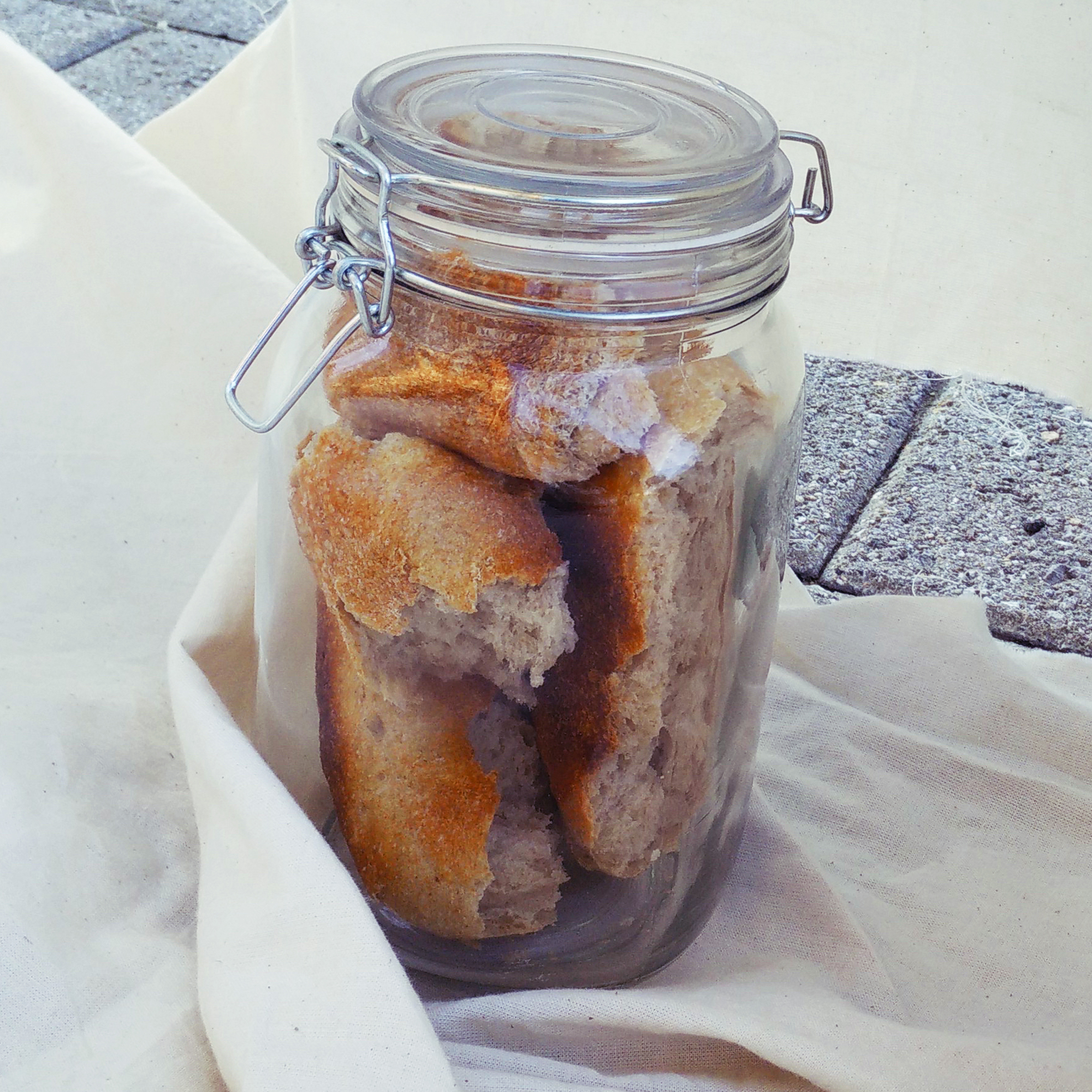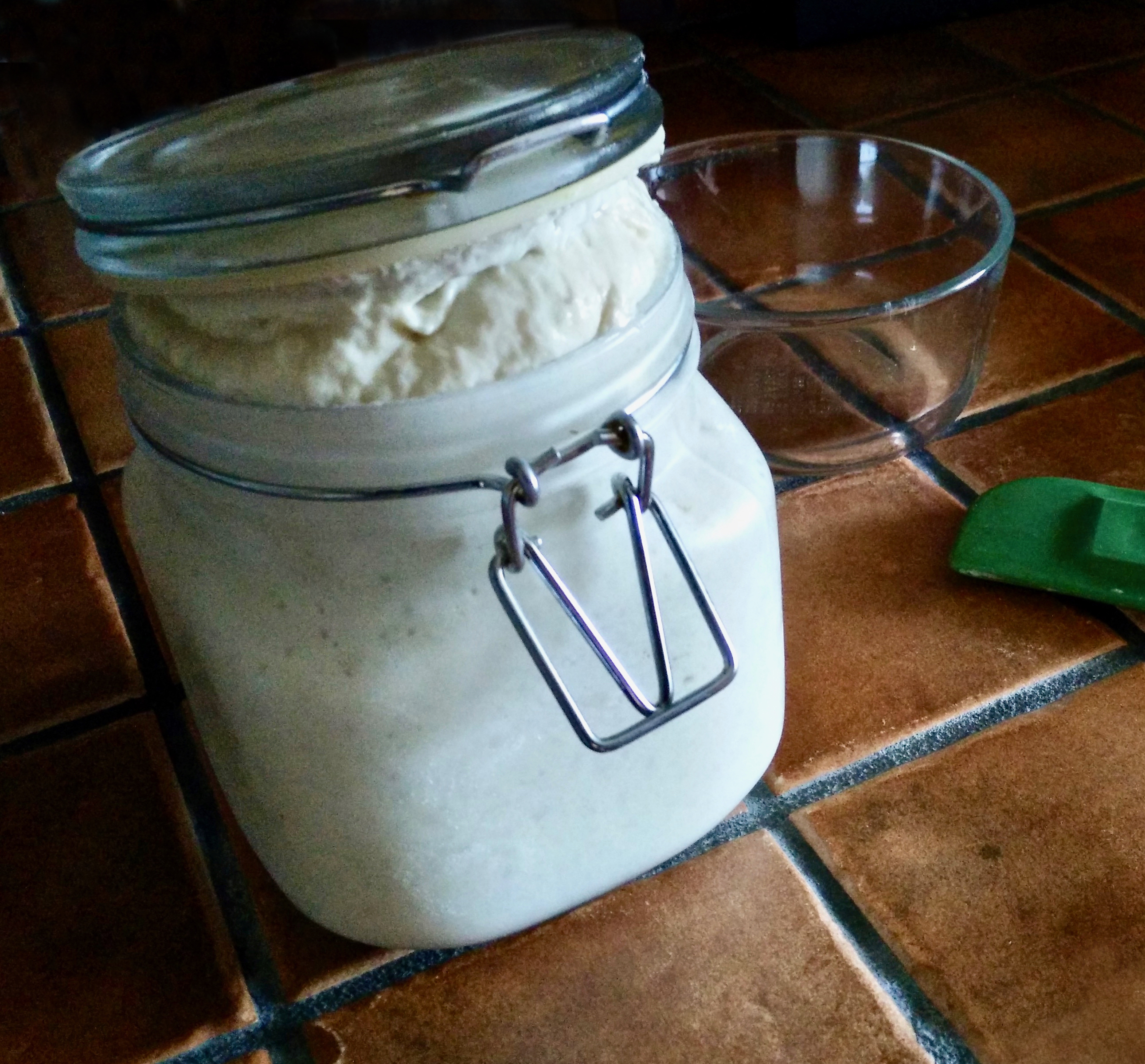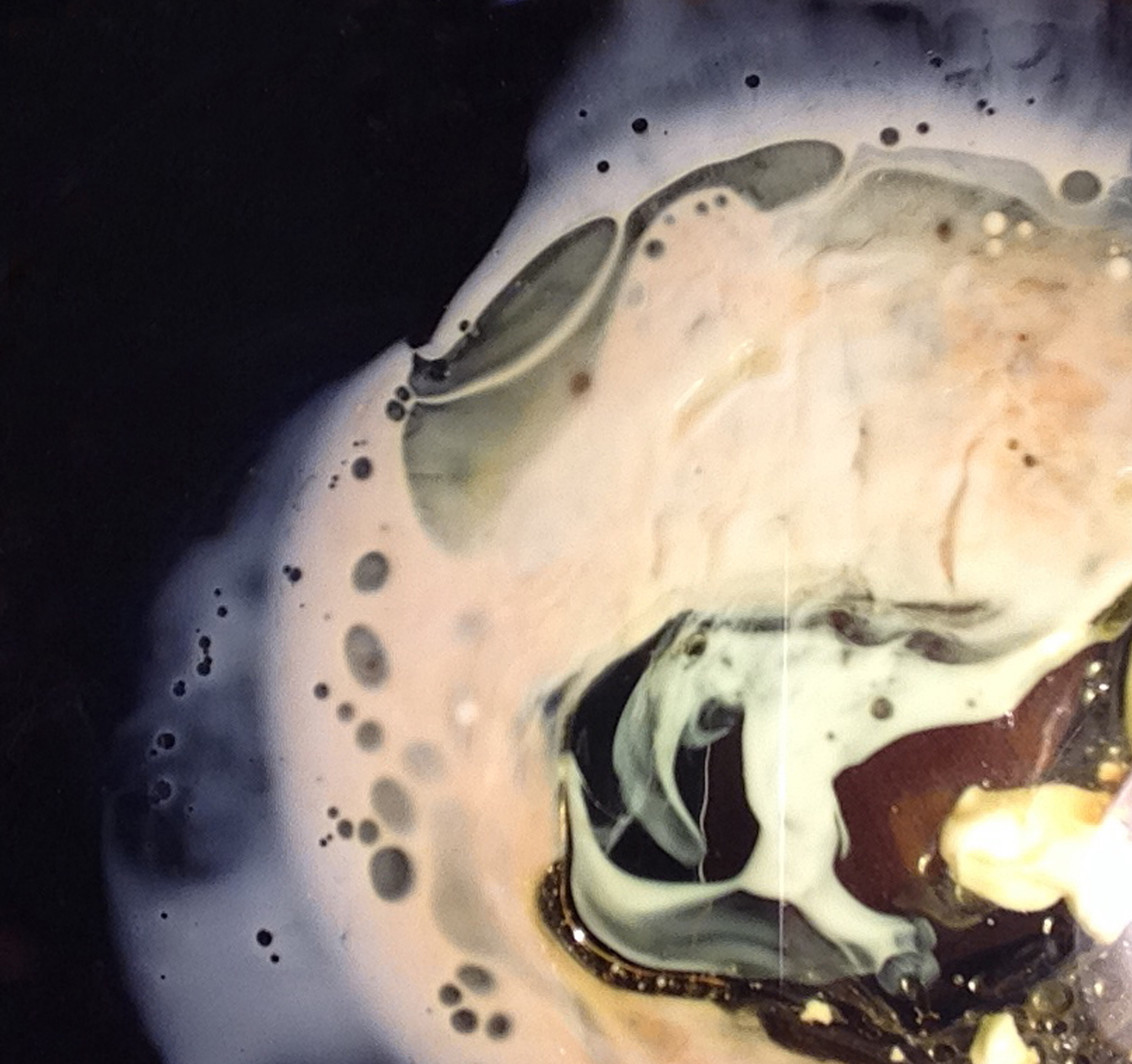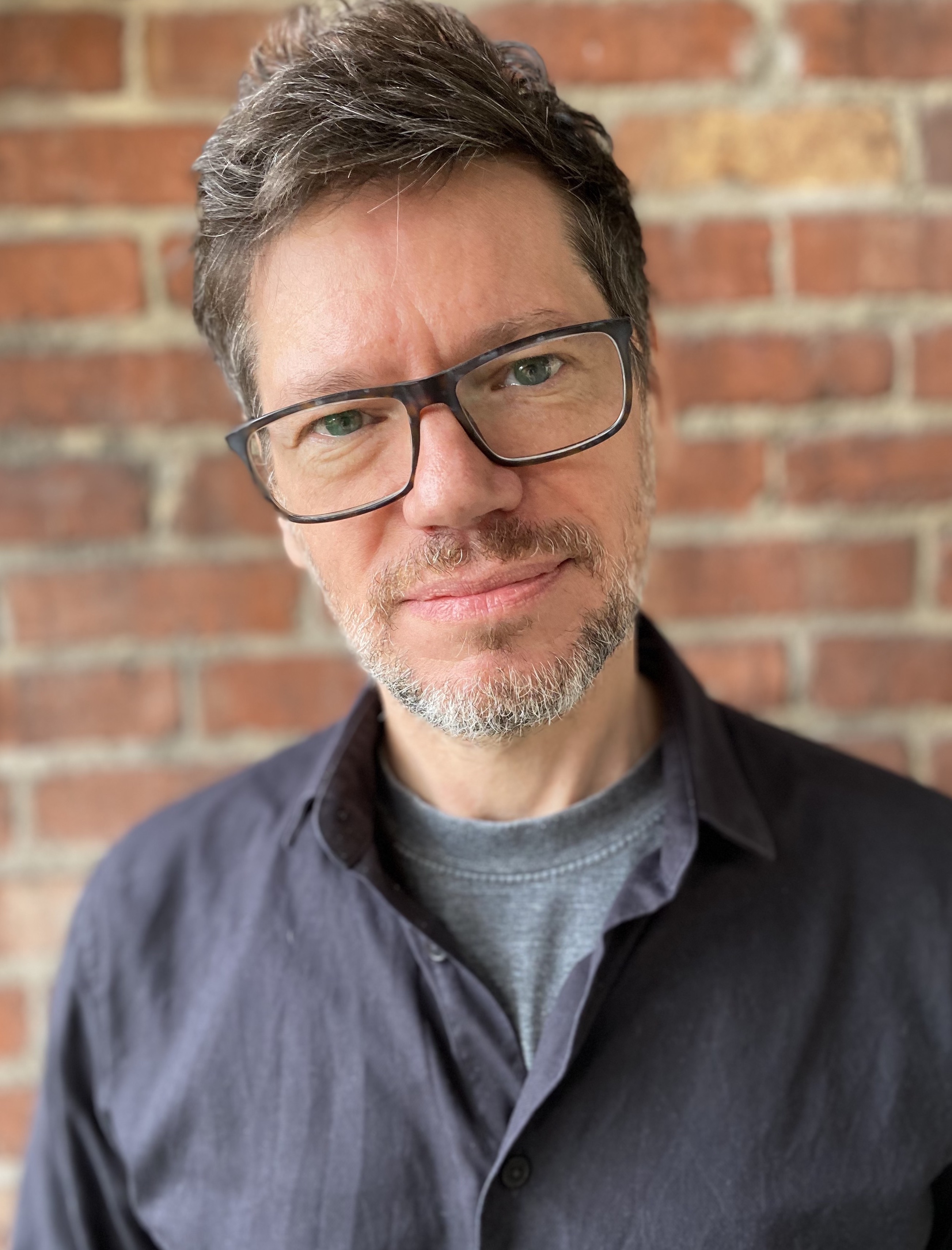Written by guest blogger David Szanto.
Resume: Staff of Life reflects on the ways in which performance with food can be a way to explore life and death, the preservation of memory, and the creation of new relationships between people and food. Three performances are described, each using bread starter culture that is more than twenty-five years old, and which was inherited from a friend of the author. The performance works played with ideas about the cyclical nature of living and dying, paralleling the ways that fermented foods (such as bread) also require yeast cultures to live, thrive, die, and regenerate. In all, a broader perspective on “preservation” is also provided, one that acknowledges that when things are stabilized and preserved, they exist in a way that is neither fully alive nor fully dead.



Photo Credit: David Szanto
Have you ever looked at your morning toast and wondered about the social lives of the wheat, salt, yeast, and water that went into it? As you chew and swallow, and then wash it down with a swig of coffee, are you curious about the conversations and arguments that bread might get into as it passes through and then out of your digestive system? What about the origins of its ingredients, or the destinations it travels to after you flush the toilet?
Research-creation about and with food is an opportunity to probe the intimate relationships that comprise our day-to-day cooking and eating, but also to wonder about the broader issues related to food systems and human existence. Research-creation experiments with knowledge making, rather than trying to define truths. It is particularly useful for engaging with dynamic, non-stable subjects, like food, ecologies, and sensing. It can also undo (or re-do) some of the conventions of scholarship, proposing alternate ways of posing questions and following threads. Intersecting with the sciences and arts, and posing some fundamental epistemic questions, research-creation is speculative, exploratory.
And if ever there were a time for speculation, isn’t this it?
Along with the crises and confusions that seem to be bombarding us daily, doubts about the legitimacy of historic academic practices have begun to creep into a lot of our minds. The patriarchies and colonialisms, racisms and hegemonies that constitute our institutions (not just academic ones) weigh heavily. They silently undergird our norms, and reconciling with such a painful reality means renovation at the most fundamental levels. And that’s scary. For if the dominant and dominating structures of disciplinarity, science, and knowing need to be remade, what will reassure us in the meantime?
In my recent exploration of the materiality of death, life, food, and memory, I rely heavily on speculation as a foundation for research-creation. Wonder and anticipation are there as well. The text I wrote provides neither nutritional guidelines nor recipes for making bread with an inherited sourdough starter. It does not unpack archival data about artisanal baking in Italy and Canada. It provides no discourse analysis of online marketing and bread-making apps. Instead, it dwells in curiosity and uncertainty, about whether and how someone might stay ‘alive’ after a stomach cancer kills him. It asks about the transference of knowledge and spirit and emotions through performances with yeast.
Does this kind of research and writing advance the projects of food studies, performance, and philosophy? Does it put value into the world, through affective action and poetic politics? Sure. Yes. Certainly. Why not?
Confusing times and precarious futures shout out for scholarly speculation, and being open to the what ifs and why nots of research. Because if not now, then when?

Photo Credit: Maxime Giroux
David Szanto is a researcher, teacher, consultant, and artist taking an experimental approach to gastronomy and food systems. Past projects include meal performances about urban foodscapes, immersive sensory installations, and interventions involving food, microbes, humans, and digital technology. David has taught at several universities in Canada and Europe and has written extensively on food, art, and performance. He is a regular contributor to the magazine Montréal en Santé, an associate editor of the open-access journal, Canadian Food Studies, and co-editor of the open educational resource, Food Studies: Matter, Meaning & Movement. davidszanto.com | iceboxstudio.com
His article, “Staff of Life: Preserving Yeast, Memory, and Humanity” appears in issue 189 of Canadian Theatre Review.
Social media: Twitter: @dszanto; Instagram: david.szanto; Facebook: david.szanto31
The UTP Journals blog features guest posts from our authors. The opinions expressed in these posts may not necessarily represent those of UTP Journals and their clients.
Comments on this entry are closed.